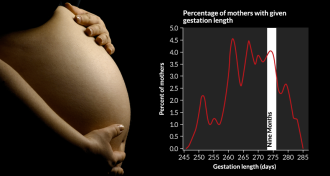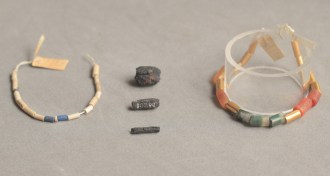Humans
Sign up for our newsletter
We summarize the week's scientific breakthroughs every Thursday.
-
 Health & Medicine
Health & MedicineDon’t stand so close to me
Personal space has a measurable boundary, a study suggests.
-
 Psychology
PsychologyPoverty may tax thinking abilities
Scarce funds reduce mental abilities of U.S. shoppers and Indian farmers, experiments suggest.
By Bruce Bower -
 Humans
HumansBabies learn words before birth
Brain responses suggest infants can distinguish distinct words from altered versions that they learned in the womb.
-
 Psychology
PsychologyBehavioral research may overstate results
'Soft' sciences inflate support for what scientists expected to find, data check suggests.
By Bruce Bower -

-
 Psychology
PsychologyFamiliar faces
"Super recognizers" never forget a visage, an unusual ability that can be put to good use.
By Susan Gaidos -

-

-
 Psychology
PsychologyWhat Makes a Hero?
The Surprising Science of Selflessness by Elizabeth Svoboda.
By Sid Perkins -
 Astronomy
Astronomy‘Space beads’ push back origins of iron working
Ancient Egyptians used advanced techniques to make beads out of 'metal from the sky.'
By Bruce Bower -
 Psychology
PsychologyBlood marker may predict suicide
People who killed themselves had higher levels of a gene involved in cell death.
-
 Health & Medicine
Health & MedicinePower of sugar may come from the mind
Only people who believe exertion zaps willpower get a boost from glucose.